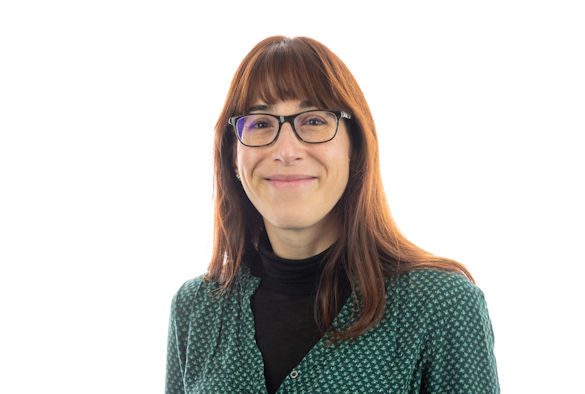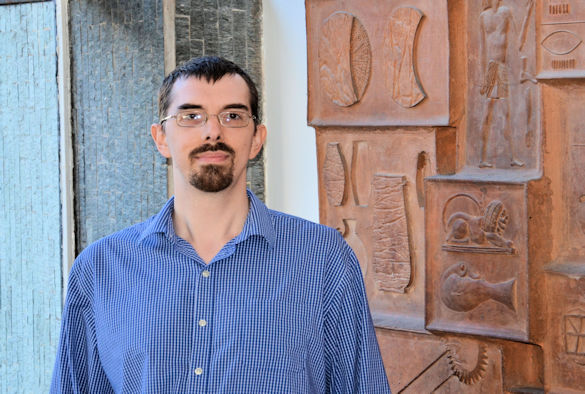
Three researchers from the University’s Faculty of Science and Engineering have been awarded prestigious Future Leaders Fellowships to pursue ambitious and adventurous research programmes in the fields of glaciology, particle physics and quantum computing.
The Future Leaders Fellowships is a highly competitive new scheme, funded by UK Research and Innovation, which provides early career researchers with the funding, flexibility and freedom to undertake research programmes on truly challenging questions.
Glaciologist Dr James Lea will use new computing techniques to monitor glacier and iceberg behaviour across both the Arctic and Antarctic regions, with a view to understanding how they will be affected by a rapidly changing climate.
His work will improve knowledge of both future global sea level change, and help understand the risks to future Arctic shipping routes as ice cover declines and iceberg producing glaciers continue to retreat.
Ultimately these factors will impact future UK supply chains between the Atlantic and Pacific Oceans, in addition to the UK’s coastal communities and infrastructure at risk of sea level rise. This research seeks to inform both climate change policy and understanding of how glacier change can pose hazards to people and industry in the polar regions and beyond.
Watch>>> Dr Lea talks about his Fellowship:
Dr Eva Vilella
Electronic engineer Dr Eva Vilella works in the Department of Physics, developing advanced silicon sensors for the tracking of charged particles in physics experiments.
Under her Future Leaders Fellowship, she aims to achieve a step change improvement to the performance of these sensors through the development of Depleted Monolithic Active Pixel Sensors (DMAPS). Her devices will incorporate a highly performant detector system on a single chip, using industry standard and cost-effective processing techniques.
The expected improvements in position accuracy, timing resolution and radiation tolerance will benefit the most challenging future experiments in physics and provide major benefits in other fields like proton therapy for cancer treatment.

Dr David Schaich
Dr David Schaich, who recently joined the University’s Department of Mathematical Sciences, aims to develop new potentially transformative technology in the field of quantum computing, a key emerging industry.
A lecturer in theoretical particle physics, Dr Schaich will apply the computational framework of lattice field theory to three new frontiers in order to address key scientific challenges and advance our understanding of the Universe.
In addition to quantum computing, he will apply the theory to investigate supersymmetry, and also engage with experiments at CERN’s Large Hadron Collider to test whether the Higgs boson or the dark matter of the Universe may be composite particles.

Professor Anthony Hollander, Pro-Vice-Chancellor for Research & Impact, said: “I am delighted that the University has been so successful in this new and very prestigious programme which specifically aims to support some of the best early career researchers and innovators in the country. The innovative and exciting nature of each of these three Fellowships reflects a wider ambition here at Liverpool to respond to global challenges and have positive societal impact .”
Science and Innovation Minister, Chris Skidmore, said: “From Sir Tim Berners-Lee’s creation of the World Wide Web, to Rosalind Franklin whose work was critical in understanding DNA, we have a rich history of talented individuals who have paved the way for ground-breaking research and discoveries in their fields.
“Our investment in these Future Leaders Fellows will enable the brightest and best of our scientists and researchers to work with leading lights in industry, to help their research move from the laboratory to the commercial market.
“This support to the next generation of scientists and researchers is a key part of our modern Industrial Strategy, and our commitment to raise R&D spend to 2.4% of GDP by 2027 will maintain the UK’s position as a world-leader in science and innovation and building on our historic legacy.”
UK Research and Innovation Chief Executive, Mark Walport, said: “The Future Leaders Fellowships offer long-term support for the most talented researchers and innovators. Fellows will be encouraged to be adventurous in tackling tough and important research questions and opportunities for innovation.
“The Fellowships offer opportunities to move across disciplinary boundaries and between academia and industry. These Fellowships will enable us to grow the strong supply of talented individuals needed to ensure that UK research and innovation continues to be world leading.”
A total of 41 Fellowships were announced in the first round of the scheme by the UK Research and Innovation. The scheme, which aim to develop, retain, attract and sustain research and innovation talent in the UK, will provide about £900 million in support over six competition rounds over three years..